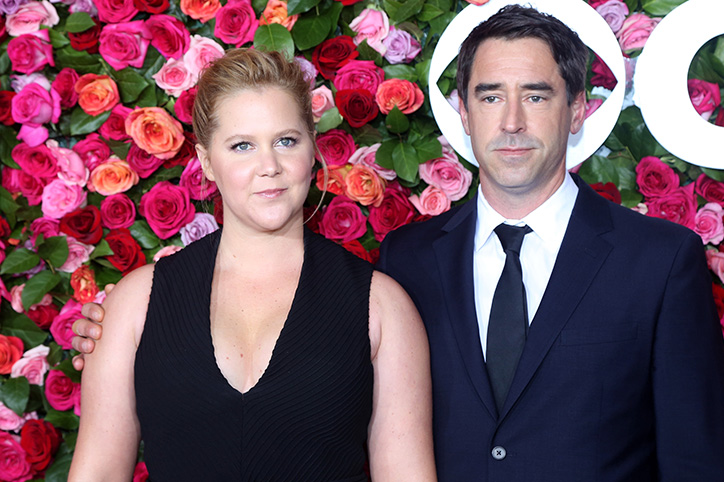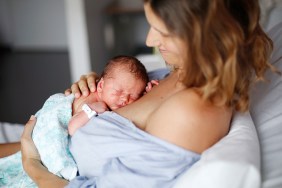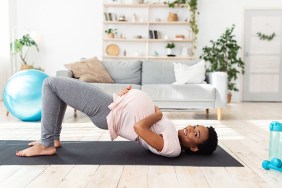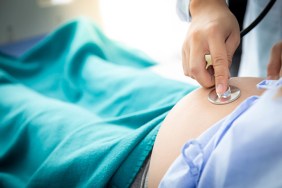Dear Amy Schumer:
Thank you for sharing.
I’ve always loved hearing what you have to say on matters big and small and how you wow us with your biting sense of humor while frequently turning your lens on life’s less-than-glam moments. You’re relatable. So, when I saw that you posted on Instagram about your recent hysterectomy and appendectomy at age 40—performed in an effort to relieve the debilitating effects of endometriosis—I could relate big-time.
I also got a hysterectomy at 40. A few years earlier, my appendix was taken out, too. I’m at nine surgeries and counting for endometriosis. I’ve had pounds of lesions excised, lost a fallopian tube before I turned 30, endured some lovely trips to the emergency room, and more. I’m sure you know the drill.
View this post on Instagram
Amy, your admission of your battle with endo and the surgeries that often go with it will help many women to feel they aren’t alone. In fact, I’ve seen a host of celebs and non-celebs alike already reaching out on social media to let you know that they, quite literally, share your pain. I truly hope many girls who just think their periods aren’t right will google “endometriosis” because of you or ask their friends about it or just look up the hashtag via your post.
Like me, many women probably related to other times you’ve spoken openly too, about your struggles with fertility (often linked to endometriosis) or about postpartum life. I had trouble conceiving both of my kids. And though I suffered some severe depression after my second daughter was born, I pined for a third child. My body, well, she had other ideas. On a family trip to Disney, I began having some pretty concerning symptoms. I sat out a day at the park to remain in bed.
View this post on Instagram
From there, months of dysfunctional uterine bleeding followed along with anemia, excruciating pain, and bloating. I was in bed A LOT. That’s not easy with two young children while also managing a part-time job and with a husband who is traveling for work constantly. I pretty much gave up on my writing and editing career. I was sick, depressed, and terrified of the unpredictable, that I’d be in public or at a meeting when I’d suddenly be unprepared for the random, heavy bleeding I was accustomed to. And the fatigue. Good lord, the fatigue. I felt like I was wading through molasses or someone drugged my coffee in the morning.
After several more invasive and smaller surgeries, my OB-GYN, a sweet, hilarious gay man who followed my struggle for years, said the words I finally needed to hear.
“Girl, you need to get that uterus out, stat!”
He recommended a surgical endometriosis specialist who routinely performed hysterectomies. As it turned out, with schedule changes and knowing I’d want plenty of time to recover with family around to help, my operation was booked for the day after Christmas.
Christmas dinner was a feast. I could eat and drink up until 9 o’clock that night. We invited our neighbors down from the upstairs apartment, grilled steaks and I drank a glass of red wine. We raised our glasses to the woman-beast my body had been, to every woman out there struggling with pain or questioning her body, we cheered a hopeful future free of stabbing pains, fear, or trips to the emergency room. It was festive and exactly what I needed. I talked to my oldest sister that night who’d undergone a similar surgery years earlier and with that, I got into bed and prepared myself for the next day.
Recovery was rough (that’s for another story) and taught me even more how often we, as women and caretakers, sacrifice our own needs for those of others. Sometimes, scarily, this can have life-altering and even fatal effects.
You and I both know that endometriosis, a disease in which tissue that normally stays put inside the uterus begins to grow outside of it (mine even grew on my stomach and bowel wall at one point), is severely misunderstood.
Here are some brutal stats. The World Health Organization estimates that endometriosis affects about 190 million women worldwide (more than 6 million in the United States) and, on average, it takes seven to ten years before a woman is diagnosed with the lifelong disease. Many doctors and health providers write off women’s symptoms as “in your head,” “dramatic” or, as an ER doctor once told me, “This will all go away when you’re pregnant one day.” This is JUST. NOT. TRUE. While pregnancy might temporarily relieve some aspects of endometriosis, the disease is chronic and incurable.
Endometriosis frequently affects fertility. It often leads to depression and anxiety. As with so many other chronic, auto-immune, inflammatory conditions, a higher rate of suicide can be associated with it.
Today, I still have endo flare-ups. They don’t magically disappear after a hysterectomy, but the effects of endo aren’t nearly what they used to be. Perhaps the best part? I don’t bleed anymore. For the people in the back, “I don’t bleed anymore!!” This means I’m no longer anemic and my lifestyle has opened up in a multitude of ways. I can control the disease now with diet, lifestyle changes, or OTC pain medications.
This past year during the pandemic, I’ve volunteered weekly at a food bank where I routinely lift 40-pound boxes from a truck, pile them onto the ground and then get them into the hands of people lined up for aid. This is something my body could not do before my hysterectomy when I agonized that, at any moment, I might start gushing blood out of nowhere.
I hope millions of women see your post. And if they feel they are suffering from painful, heavy periods, and/or painful sex, I implore them to reach out to a trusted doctor or care provider*.
Recently, I’ve begun work on a book about endometriosis and as I listen to other women tell their stories, it’s not just a thread, but more like a thick, knotted rope of shame and fear that are woven through each of their experiences.
There’s the high-powered executive in a board meeting when blood begins to seep out unexpectedly. The teen sitting in the last row of the bus so no one sees her “accident.” Or, me, helping two young girls do math homework when suddenly I feel like my water just broke (Spoiler alert: I wasn’t pregnant and it wasn’t water.) and the room suddenly goes fuzzy. Canceled plans. Deferred dreams. This is the reality for women living with this disease.
In places where women don’t have access to birth control pills, solid health insurance or gynecological services, it’s even worse. Young women grow up thinking something is wrong with their bodies, but are afraid to tell anyone. They think they are dying. They might miss school or work because they don’t have the means to always buy pads and tampons. In some cases, because in many parts of the world people are still afraid to talk about lady parts and what the reproductive system does, they might not even know how to use feminine hygiene products or what their period is.
In the days and week ahead, I wish you the best Amy and I hope you really take care of yourself and honor your body’s needs. You will feel a lot of things. Don’t be surprised if you feel sadness along with the revelation that you’re on your way to a better life. You might feel a deep loss. I know I did. I mourned the end of having babies. Pregnancy and nursing. I mourned my changing body even as I celebrated my recovery.
And then, like snow that begins light and iridescent and even too hard to see with squinted eyes, but builds and ends in a flurry of snowball fights big and joyful…little by little, everything got brighter. I felt better than I had in years. I almost couldn’t believe it. I’d finally ripped off a mantle that had weighed me down since the age of 14.
Amy, as we say in the endo community, you’re a warrior. Thank you, again, for sharing.
*(Visit endofound.org for more information and resources.)








